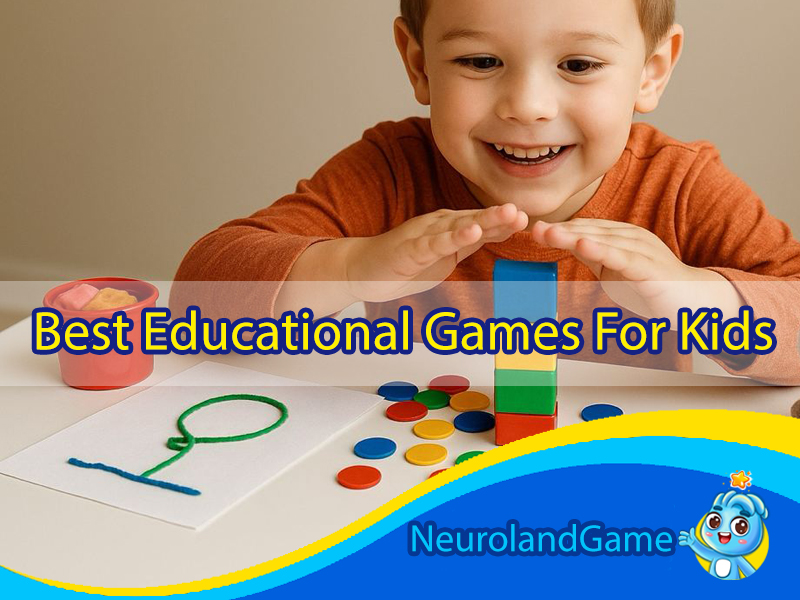- 33 Best indoor Games for preschool
Indoor games for preschoolers are the best way to learn. At this age, their brains are developing rapidly, and play boosts their cognitive, emotional, motor, and language skills. The following list of fun and educational games for toddlers and preschoolers of Neuroland is packed with ideas that require minimal equipment and offer maximum developmental benefit.
Why Games Matter in Early Childhood
Children aged 3 to 6 learn primarily through play. Games help develop:
- Motor skills (gross and fine)
- Cognitive abilities (problem-solving, memory, logic)
- Language and communication
- Social and emotional intelligence
By selecting age-appropriate games, you help children build confidence and independence while strengthening bonds through shared play.
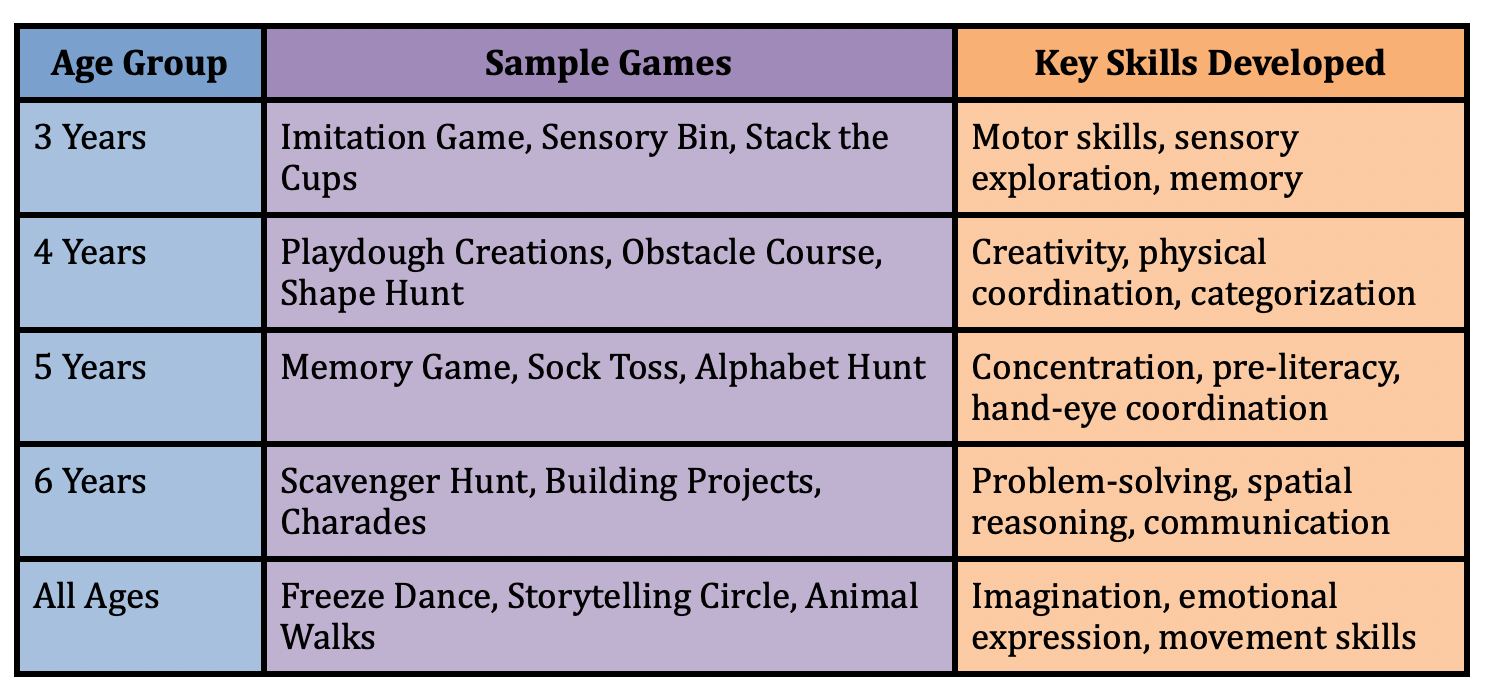
Indoor Games for 3-Year-Olds
1. Imitation Game

Act out actions (like clapping) and have your child mimic them. You can also reverse roles and copy them.
- Skills: Motor skills, observation, memory
2. Yarn Painting
Dip pieces of yarn in washable paint and press them onto paper to create colorful patterns.
- Skills: Fine motor control, creativity
3. Sensory Bin
Fill a tub with rice, dry beans, or water beads. Add small toys and scoops for exploration.
- Skills: Tactile awareness, concentration
4. Animal Sounds
Make different animal noises and ask your child to name the animal. Or play a recording and let them guess.
- Skills: Listening, language development
5. Stack the Cups
Use plastic cups to create towers or build structures.
- Skills: Hand-eye coordination, balance
6. Follow the Leader
Walk, hop, crawl, and let your child copy your moves in sequence.
- Skills: Gross motor control, sequencing
Indoor Games for 4-year-olds
7. Playdough Creations
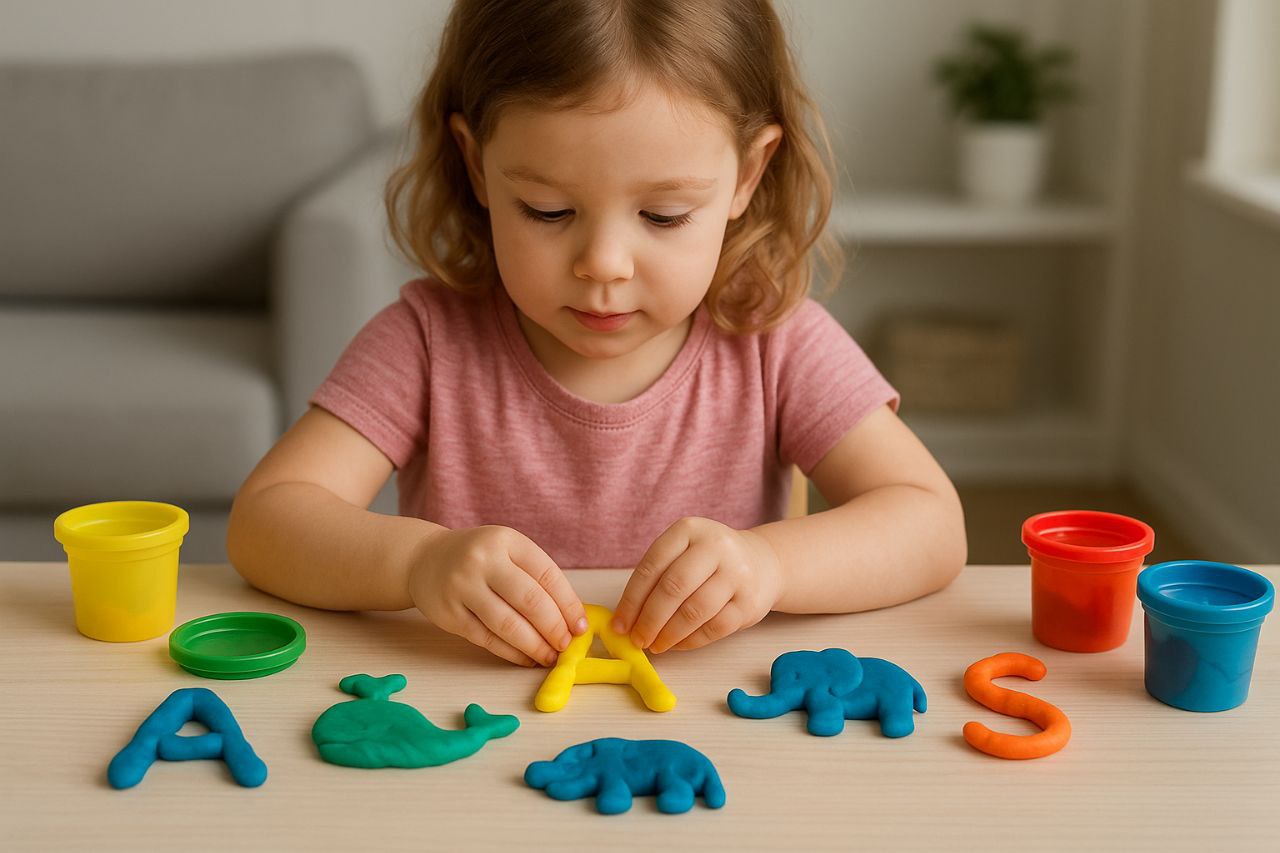
Create shapes, animals, or letters using playdough.
- Skills: Creativity, fine motor skills
8. Obstacle Course
Set up pillows, chairs, and blankets for kids to crawl under, jump over, or run around.
- Skills: Physical coordination, problem-solving
9. Story Sequencing Cards
Print or draw 3–4 image cards that tell a simple story. Ask your child to place them in order.
- Skills: Logical thinking, storytelling
10. Shape Hunt
Hide cut-out shapes around a room and ask kids to find specific ones of them.
- Skills: Visual discrimination, shape recognition
11. Color Sorting
Provide colored blocks, beads, or balls and let kids sort them into matching colored cups.
- Skills: Categorization, attention to detail
12. Puppet Show
Use socks or paper bags to create puppets and let your child act out a story.
- Skills: Imagination, verbal expression
Indoor Games for 5-year-olds
13. Memory Matching Game
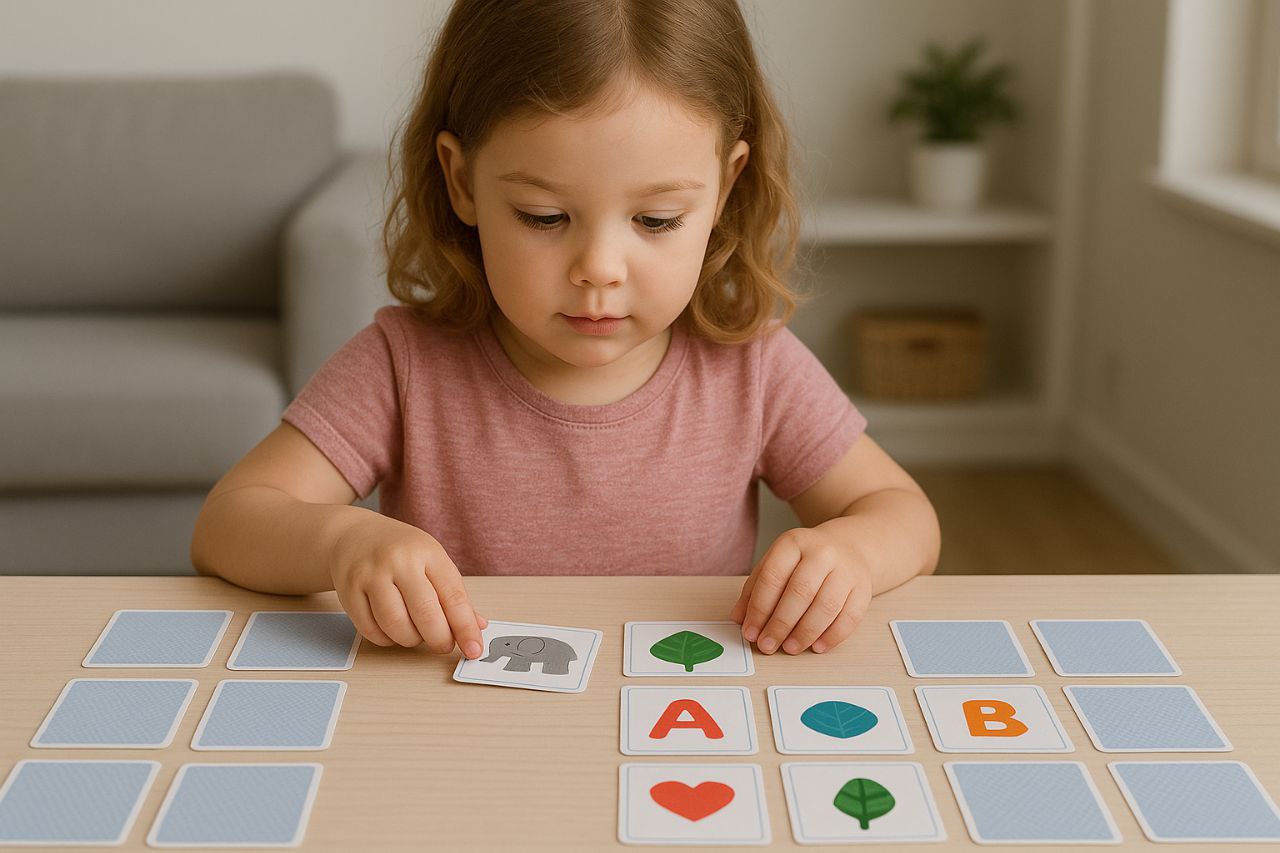
Use store-bought cards or make your own with animals, shapes, or letters. Lay face-down and match pairs.
- Skills: Visual memory, concentration
14. Simon Says
Call out instructions prefixed with “Simon says…” and see who follows them accurately.
- Skills: Listening, impulse control
15. Simple Board Games
Games like Candy Land or Chutes and Ladders teach turn-taking and counting.
- Skills: Numeracy, patience
16. Cooking Together
Make a sandwich or fruit salad together. Involve your child in measuring and sequencing.
- Skills: Life skills, sequencing, math
17. Sock Toss
Roll socks into balls and toss them into a basket from different distances.
- Skills: Aiming, coordination
18. Alphabet Treasure Hunt
Hide foam or paper letters around the house. Ask your child to find specific ones.
- Skills: Letter recognition, literacy
Indoor Games for 6-year-olds
19. Scavenger Hunt
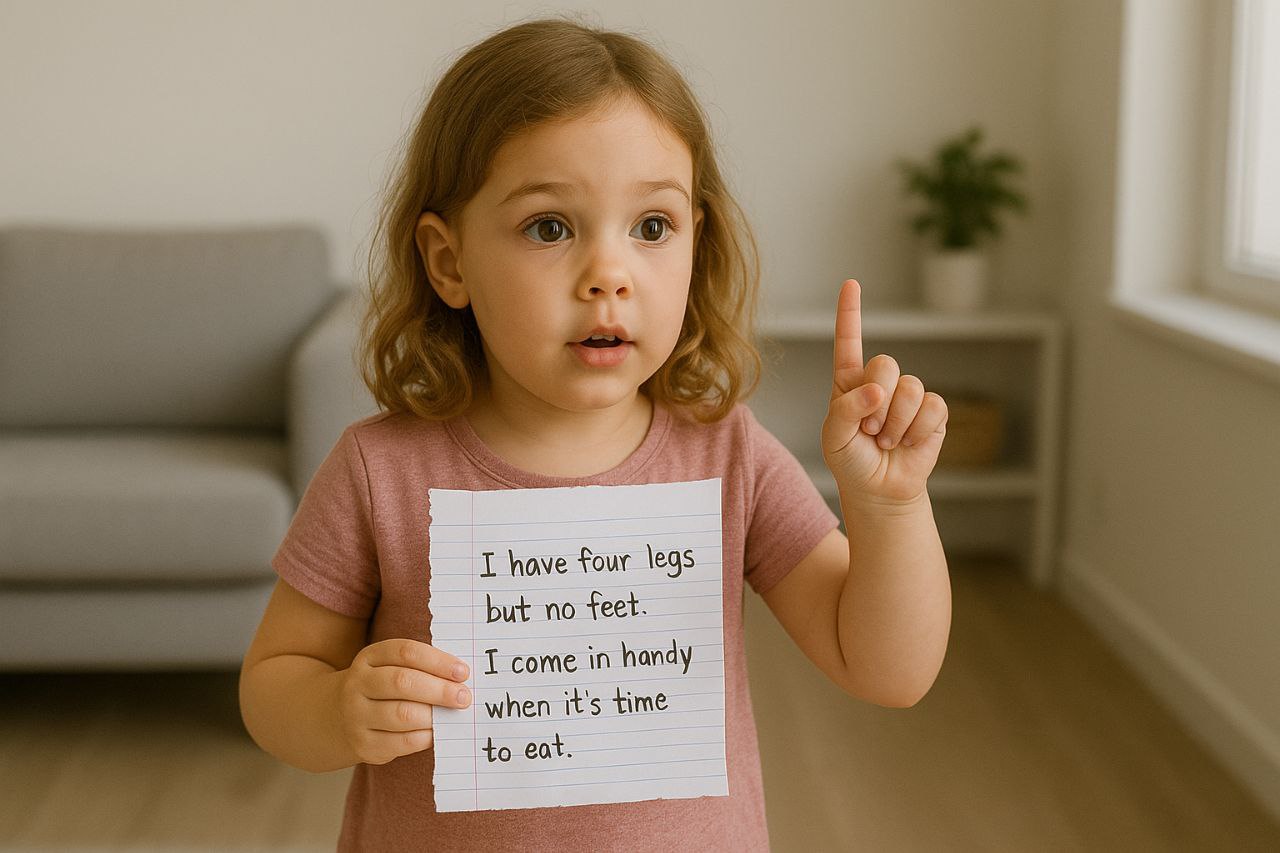
Give clues or riddles to lead your child to hidden objects or even ask some easy fun enigma.
- Skills: Deductive reasoning, vocabulary
20. DIY Science Experiments
Try safe home science: vinegar and baking soda, ice melting, or sink/float tests.
- Skills: Scientific curiosity, critical thinking
21. Building Projects
Use blocks, LEGO, or recyclables to construct buildings or machines.
- Skills: Spatial awareness, creativity
22. Charades
Act out actions, animals, or professions without speaking.
- Skills: Communication, body language
23. Make Your Own Map
Draw a map of your home or neighborhood. Add symbols and a legend.
- Skills: Geography, spatial reasoning
24. Coin Sorting
Let your child sort coins by size or value. Use the opportunity to introduce money concepts.
- Skills: Math, categorization
Indoor Games Suitable for All Ages (3–6)
25. Kids Learning Application
This is a fun and educational app designed for young children, offering over 40 carefully crafted games that support the development of essential skills such as attention, memory, early math, English alphabet recognition, and more. The games are tailored to different age groups and automatically adjust to each child’s developmental level, providing a personalized learning experience for children aged 3 to 6.
- Skills: memory, attention, math, alphabet, …
26. Shadow Puppets
Shine a light and use hands or paper cutouts to make shapes and characters.
- Skills: Visual imagination, storytelling
27. Storytelling Circle
Take turns adding lines to a shared story.
- Skills: Language development, imagination
28. Animal Walks
Walk like a crab, hop like a frog, or slither like a snake.
- Skills: Movement, balance
29. Guess the Sound
Use a blindfold and common objects to make noises (e.g., keys jingling, paper tearing).
- Skills: Auditory processing
30. Balloon Volleyball
Play volleyball with a balloon using hands, a fly swatter, or even a spoon.
- Skills: Gross motor coordination, teamwork
31. Nature Walk Bingo
Create a bingo card of things to find on a walk: bird, rock, flower, cloud.
- Skills: Observation, environmental awareness
32. Emotion Faces Drawing
Draw faces showing different emotions. Talk about what causes each feeling.
- Skills: Emotional literacy, empathy
33. Freeze Dance
Play music and dance! When the music stops, everyone must freeze.
- Skills: Rhythm, self-control
How Parents Can Support and Enhance Each Game
To maximize the benefits of these games, parents and caregivers play a vital role in guiding and participating in the activities. Here are some tips to help adults engage effectively with children during play:
- Set a Positive Tone:
Show enthusiasm and interest in the activity to encourage your child. - Follow Your Child’s Lead:
Let the child’s curiosity and creativity guide the play rather than strictly controlling it. - Use Open-Ended Questions:
Ask questions like “What do you think will happen next?” or “How can we solve this problem?” to promote critical thinking. - Be Patient and Supportive:
Allow time for trial and error, and celebrate small achievements. - Extend the Learning:
Connect the game to real-life situations or other learning opportunities to deepen understanding.
For example, in a role-playing game with dolls or action figures, parents can take turns acting out different characters, helping children practice social skills and empathy. During building or sorting games, asking children to explain their choices can foster language development and logical thinking.
Age-Appropriate Tips for Play
Children develop rapidly between the ages of 3 and 6, so it’s important to adapt play activities to their evolving abilities:
3-Year-Olds:
Focus on simple games that promote sensory exploration and basic motor skills. Short, repetitive activities work best as attention spans are limited. Examples include stacking blocks or simple pretend play.
4-Year-Olds:
Encourage more complex imaginative play and games involving simple rules. This is a great age to introduce cooperative games and storytelling, which enhance social and language skills.
5-Year-Olds:
Children at this stage can handle longer, rule-based games that require turn-taking and problem-solving. Activities that challenge fine motor skills, like cutting shapes or assembling puzzles, are also beneficial.
6-Year-Olds:
Six-year-olds are ready for more strategic games that promote critical thinking, such as simple board games or memory games. Encourage activities that require planning and teamwork to build cognitive and social abilities.
Tailoring play to your child’s age ensures that activities are engaging and developmentally appropriate, helping them build confidence and new skills progressively.
How to Create a Play-Friendly Environment at Home
Creating a safe, welcoming space dedicated to play encourages children to engage more deeply in learning activities. Here are some tips to make your home more play-friendly:
Designate a Safe Play Area:
Choose a quiet corner or a room where children can play freely without hazards. Soft rugs or mats can cushion falls and provide comfort.
Organize Toys Accessibly:
Store toys and materials within the child’s reach to promote independence and choice. Use bins or shelves to keep things tidy and easy to find.
Set Regular Playtimes:
Consistent routines help children anticipate and look forward to play. Setting aside daily time for free play or guided activities encourages a habit of learning through play.
Limit Distractions:
Reduce background noise and screen time during play sessions to help children focus and engage more fully.
Incorporate Natural Materials:
Use items like wooden blocks, fabrics, or household objects to stimulate creativity and sensory experiences.
Final Tips for Parents
These screen-free games for 3 to 6-year-olds are designed to boost development in fun, natural ways. You don’t need fancy tools—just imagination, curiosity, and a little time.


